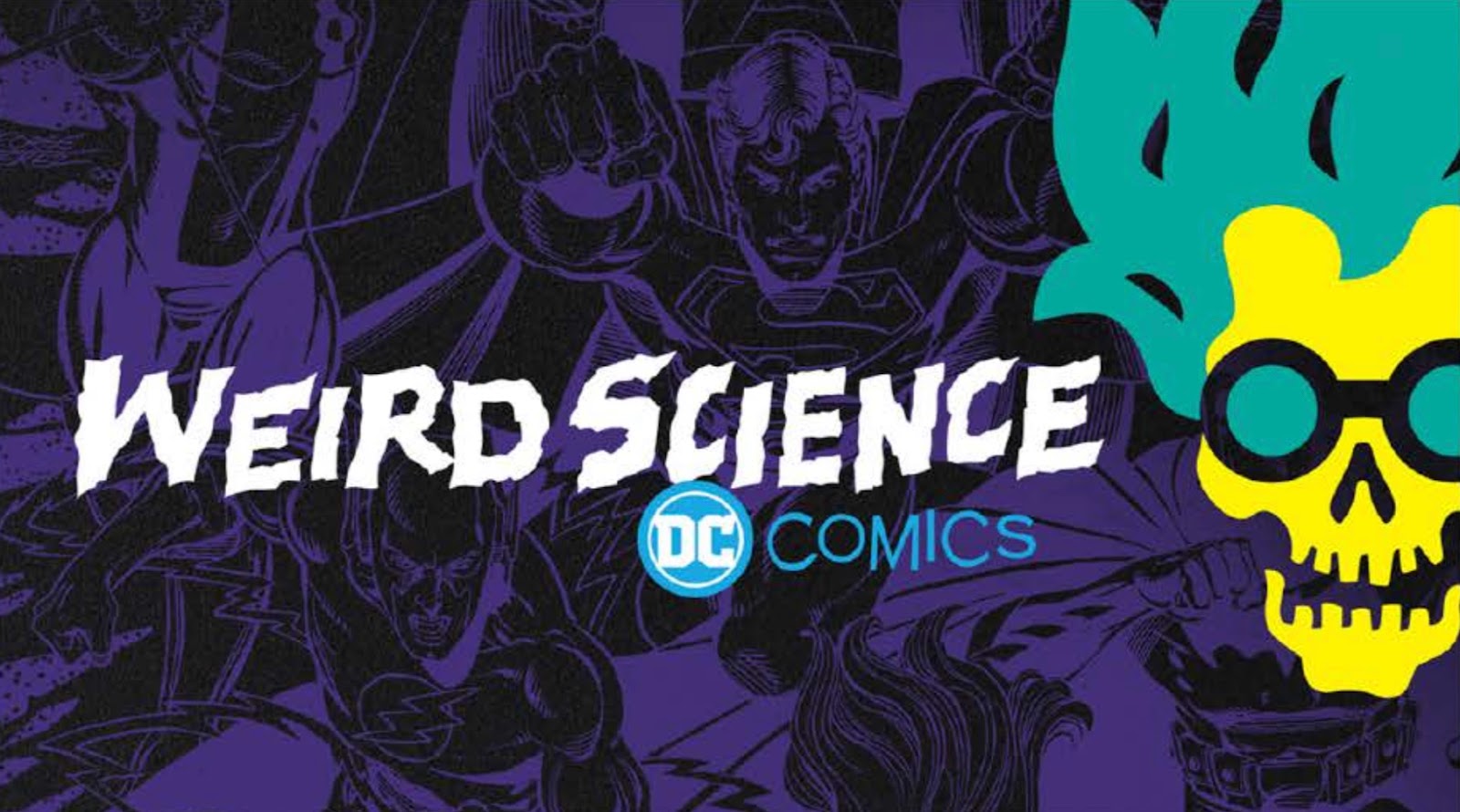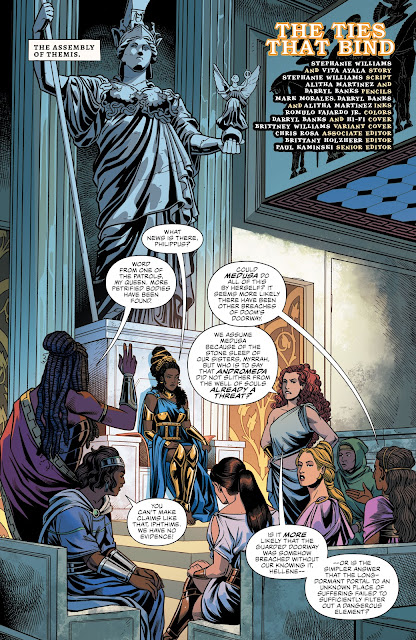Was It Good?
I laughed out loud in the middle of Nubia & The Amazons #4, and it's for a reason you'd probably never expect. When last we left the citizens of Paradise Island, Medusa's spirit had been publicly exposed as a threat, possessing Andromeda's body and on the run. Now, readers are treated to big meetings and small meetings and tense meetings and intimate meetings to discuss what happened and the implications for Doom's Doorway.
If it sounds like everything happening on Themyscira is a collection of dialog scene after dialog scene, you'd be right. However, we do get a fair bit of action with Nubia fighting a manticore during a flashback to her time in Chicago.
What's so odd and bizarre enough to force a laugh out of me are two things that happen during the Chicago flashback. First, the dialog during the Chicago flashback is bad. Horrendously bad. When a mythological beast suddenly appears and attacks a school field trip to the museum, no adult in the history of Earth has ever uttered the phrase "SWEET SUGAR GRITS!" I defy anyone to prove me wrong on this point. That's one of many bad dialog examples in this issue.
Second, Williams and Ayala turn Nubia into what feels like a parody of toxic masculinity that isn't quite a parody. The schoolteacher from the aforementioned field trip catches Nubia's eye, and Nubia starts calling her pet names like "beautiful" and follows her home that night. For all the criticisms these days about "toxic masculinity", why Phillips and Ayala would choose to insert all those so-called "toxic" attributes into Nubia is a mystery. I was half-expecting Nubia to playfully smack the schoolteacher on the ass and proclaim "I'd like some cake with my steak". It's a crazily out-of-character take on Nubia, and I laughed at its absurdity.
If the flashback had something relevant to the story, I could go with it as a strange way to present a cogent moment, but what makes it worse is how absolutely pointless to the story it is. The flashback has no bearing on the conflict with Medusa. None. Not the least little bit. In short, it's written poorly and it does nothing for the story.
By the time the issue wraps up, Phillips and Ayala take the "hurt people hurt other people" tact with Medusa. The conclusion hints that Medusa isn't really bad, she's just misunderstood. An approach to villainy that seems to be the norm in comics these days. At the very least, where the story is headed is certainly unpredictable.





No comments:
Post a Comment